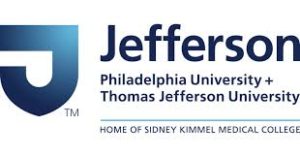EVENT RECORDING FROM OCTOBER 15, 2018 | 8AM-5PM
SYMPOSIUM TOPICS
Robustness of Research
Federal Agency Views from the National Institutes of Health and the National Science Foundation
Perspectives from Academia
Issues Impacting Data Analysis Credibility
Strategies to Move the Cultural Needle
Scientific Communication and the Public Trust
AGENDA
Registration with Continental Breakfast and Networking.

 Dawn Bonnell, Ph.D. is the Vice Provost for Research of the University of Pennsylvania. In this capacity Dr. Bonnell shapes policy and advances administrative initiatives for the University’s $900+ million research enterprise as well as plays a leadership role in strategic planning for research and administers the development of new research facilities.
Dawn Bonnell, Ph.D. is the Vice Provost for Research of the University of Pennsylvania. In this capacity Dr. Bonnell shapes policy and advances administrative initiatives for the University’s $900+ million research enterprise as well as plays a leadership role in strategic planning for research and administers the development of new research facilities.
Profile
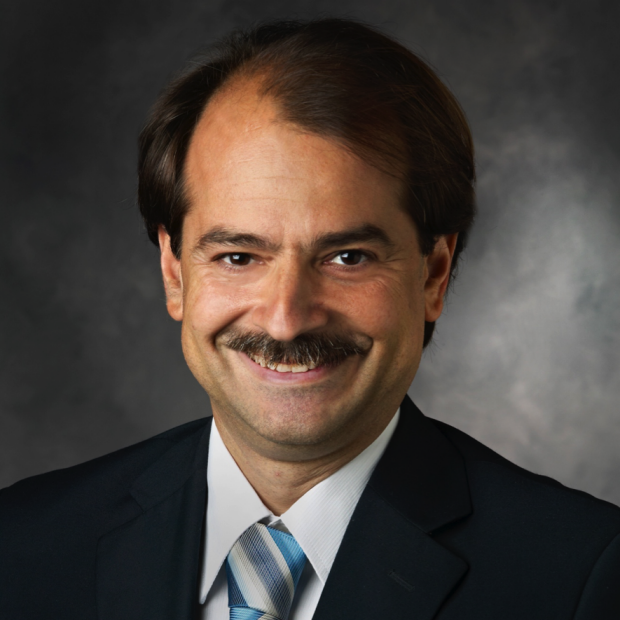
 John Ioannidis is a Professor of Medicine and of Health Research and Policy at Stanford University School of Medicine and a Professor of Statistics at Stanford University School of Humanities and Sciences. He is director of the Stanford Prevention Research Center, and co-director, along with Steven N. Goodman, of the Meta-Research Innovation Center at Stanford (METRICS). He is also the editor-in-chief of the European Journal of Clinical Investigation. Ioannidis’s 2005 paper “Why Most Published Research Findings Are False” has been the most downloaded technical paper from the journal PLoS Medicine.
John Ioannidis is a Professor of Medicine and of Health Research and Policy at Stanford University School of Medicine and a Professor of Statistics at Stanford University School of Humanities and Sciences. He is director of the Stanford Prevention Research Center, and co-director, along with Steven N. Goodman, of the Meta-Research Innovation Center at Stanford (METRICS). He is also the editor-in-chief of the European Journal of Clinical Investigation. Ioannidis’s 2005 paper “Why Most Published Research Findings Are False” has been the most downloaded technical paper from the journal PLoS Medicine.
Profile

Moderator:
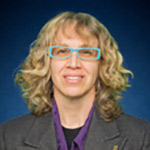 Jane Greenberg is the Alice B. Kroeger Professor and Director of the Metadata Research Center at the College of Computing & Informatics, Drexel University. Her research activities focus on metadata, knowledge organization/semantics, linked data, data science, and information economics. She serves on the advisory board of the Dublin Core Metadata Initiative (DCMI) and the steering committee for the NSF Northeast Big Data Innovation Hub (NEBDIH).
Jane Greenberg is the Alice B. Kroeger Professor and Director of the Metadata Research Center at the College of Computing & Informatics, Drexel University. Her research activities focus on metadata, knowledge organization/semantics, linked data, data science, and information economics. She serves on the advisory board of the Dublin Core Metadata Initiative (DCMI) and the steering committee for the NSF Northeast Big Data Innovation Hub (NEBDIH).
Profile
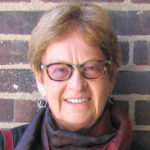 Irma T. Elo, Ph.D. is an Professor of Sociology at Penn whose studies include analysis of race/ethnic disparities in maternal and infant and child health in Philadelphia and nationally, early life conditions and adult mortality in Finland, and differences in health and mortality among native-born and foreign-born US residents.
Irma T. Elo, Ph.D. is an Professor of Sociology at Penn whose studies include analysis of race/ethnic disparities in maternal and infant and child health in Philadelphia and nationally, early life conditions and adult mortality in Finland, and differences in health and mortality among native-born and foreign-born US residents.
Profile
 Dr. Simon Giszter is a professor in the Department of Neurobiology & Anatomy at Drexel University College of Medicine. He is also joint faculty in the School for Biomedical Engineering, Science & Health Systems at Drexel. He has a long history of collaboration with members of the Spinal Cord Injury Research Center and with laboratories in the School of Bioengineering, Science & Health Systems and in the College of Engineering.
Dr. Simon Giszter is a professor in the Department of Neurobiology & Anatomy at Drexel University College of Medicine. He is also joint faculty in the School for Biomedical Engineering, Science & Health Systems at Drexel. He has a long history of collaboration with members of the Spinal Cord Injury Research Center and with laboratories in the School of Bioengineering, Science & Health Systems and in the College of Engineering.Profile
 Aaron Roth is an Associate Professor in Computer and Information Science at Penn who studies algorithmic foundations of data privacy and game theory and has done prescriptive work on p hacking.
Aaron Roth is an Associate Professor in Computer and Information Science at Penn who studies algorithmic foundations of data privacy and game theory and has done prescriptive work on p hacking.Profile
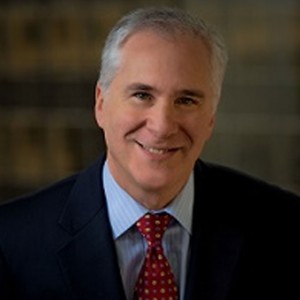
Moderator:
 Dr. Lisa Nichols is the Director of Research and Regulatory Reform at the Council on Governmental Relations. In this capacity Dr. Nichols engages executive and legislative branch staff and other parties that regulate or fund academic research to facilitate the development of effective and efficient legislation, regulations, policies, guidance, processes, and systems, particularly with respect to research regulatory reform and areas such as research with human participants and animals and conflict of interest.
Dr. Lisa Nichols is the Director of Research and Regulatory Reform at the Council on Governmental Relations. In this capacity Dr. Nichols engages executive and legislative branch staff and other parties that regulate or fund academic research to facilitate the development of effective and efficient legislation, regulations, policies, guidance, processes, and systems, particularly with respect to research regulatory reform and areas such as research with human participants and animals and conflict of interest.
Profile
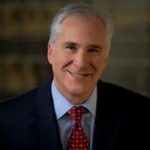 Dr. Leonard Freedman is the founding President of the Global Biological Standards Institute (GBSI). Prior to starting GBSI, he served as Vice Dean for Research and Professor of Biochemistry and Molecular Biology at Jefferson Medical College, a Vice President at Wyeth and Executive Director at Merck and a Professor of Cell Biology & Genetics at Memorial Sloan-Kettering Cancer Center and Weil Cornell Medical College.
Dr. Leonard Freedman is the founding President of the Global Biological Standards Institute (GBSI). Prior to starting GBSI, he served as Vice Dean for Research and Professor of Biochemistry and Molecular Biology at Jefferson Medical College, a Vice President at Wyeth and Executive Director at Merck and a Professor of Cell Biology & Genetics at Memorial Sloan-Kettering Cancer Center and Weil Cornell Medical College.Profile
 As the Senior Associate Provost for Research Conduct and Compliance, Dr. Theodore Taraschi oversees the Office of Research Conduct and Compliance and facilitates the conduct of ethical and regulation-compliant (animal and human subject) research through an integrated system of research review, audit and educational programs established in a manner that maximizes institutional effectiveness.
As the Senior Associate Provost for Research Conduct and Compliance, Dr. Theodore Taraschi oversees the Office of Research Conduct and Compliance and facilitates the conduct of ethical and regulation-compliant (animal and human subject) research through an integrated system of research review, audit and educational programs established in a manner that maximizes institutional effectiveness.Profile
 Brian Nosek is co-Founder and Executive Director of the Center for Open Science that operates the Open Science Framework. COS is enabling open and reproducible research practices worldwide. Brian is also a Professor in the Department of Psychology at the University of Virginia. He received his Ph.D. from Yale University in 2002. He co-founded Project Implicit, a multi-university collaboration for research and education investigating implicit cognition–thoughts and feelings that occur outside of awareness or control. Brian investigates the gap between values and practices, such as when behavior is influenced by factors other than one’s intentions and goals. Research applications of this interest include implicit bias, decision-making, attitudes, ideology, morality, innovation, barriers to change, open science, and reproducibility. In 2015, he was named one of Nature’s 10 and to the Chronicle for Higher Education Influence list.
Brian Nosek is co-Founder and Executive Director of the Center for Open Science that operates the Open Science Framework. COS is enabling open and reproducible research practices worldwide. Brian is also a Professor in the Department of Psychology at the University of Virginia. He received his Ph.D. from Yale University in 2002. He co-founded Project Implicit, a multi-university collaboration for research and education investigating implicit cognition–thoughts and feelings that occur outside of awareness or control. Brian investigates the gap between values and practices, such as when behavior is influenced by factors other than one’s intentions and goals. Research applications of this interest include implicit bias, decision-making, attitudes, ideology, morality, innovation, barriers to change, open science, and reproducibility. In 2015, he was named one of Nature’s 10 and to the Chronicle for Higher Education Influence list.Profile

Introduction:
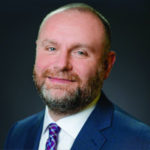 Dr. Aleister Saunders is the Senior Vice Provost for Research at Drexel University. He is also a professor of biology and researcher. His laboratory focuses its research efforts on identifying and characterizing genes and pathways that are involved in pathogenesis of Alzheimer’s disease (AD).
Dr. Aleister Saunders is the Senior Vice Provost for Research at Drexel University. He is also a professor of biology and researcher. His laboratory focuses its research efforts on identifying and characterizing genes and pathways that are involved in pathogenesis of Alzheimer’s disease (AD).
Profile
 Brian Nosek is co-Founder and Executive Director of the Center for Open Science that operates the Open Science Framework. COS is enabling open and reproducible research practices worldwide. Brian is also a Professor in the Department of Psychology at the University of Virginia. He received his Ph.D. from Yale University in 2002. He co-founded Project Implicit, a multi-university collaboration for research and education investigating implicit cognition–thoughts and feelings that occur outside of awareness or control. In 2015, he was named one of Nature’s 10 and to the Chronicle for Higher Education Influence list.
Brian Nosek is co-Founder and Executive Director of the Center for Open Science that operates the Open Science Framework. COS is enabling open and reproducible research practices worldwide. Brian is also a Professor in the Department of Psychology at the University of Virginia. He received his Ph.D. from Yale University in 2002. He co-founded Project Implicit, a multi-university collaboration for research and education investigating implicit cognition–thoughts and feelings that occur outside of awareness or control. In 2015, he was named one of Nature’s 10 and to the Chronicle for Higher Education Influence list.
Profile
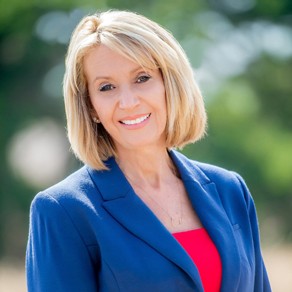
Introduction:
 Dr. Michele Masucci is the current Vice President for Research at Temple University, and has served previously as Vice Provost for Research, Senior Associate Vice Provost for Research, Director of Research Development, Director of the Information Technology and Society Research Group and Chair of the Department of Geography and Urban Studies. In her role as the Vice President for Research, she oversees the research enterprise for the university, including strategic research initiatives, technology transfer, research integrity and compliance, and grant administration.
Dr. Michele Masucci is the current Vice President for Research at Temple University, and has served previously as Vice Provost for Research, Senior Associate Vice Provost for Research, Director of Research Development, Director of the Information Technology and Society Research Group and Chair of the Department of Geography and Urban Studies. In her role as the Vice President for Research, she oversees the research enterprise for the university, including strategic research initiatives, technology transfer, research integrity and compliance, and grant administration.
Profile
 Dr. Marcia Kemper McNutt is an American geophysicist who became the 22nd president of the National Academy of Sciences on July 1, 2016. She was previously editor-in-chief of the journal Science.
Dr. Marcia Kemper McNutt is an American geophysicist who became the 22nd president of the National Academy of Sciences on July 1, 2016. She was previously editor-in-chief of the journal Science.
Profile
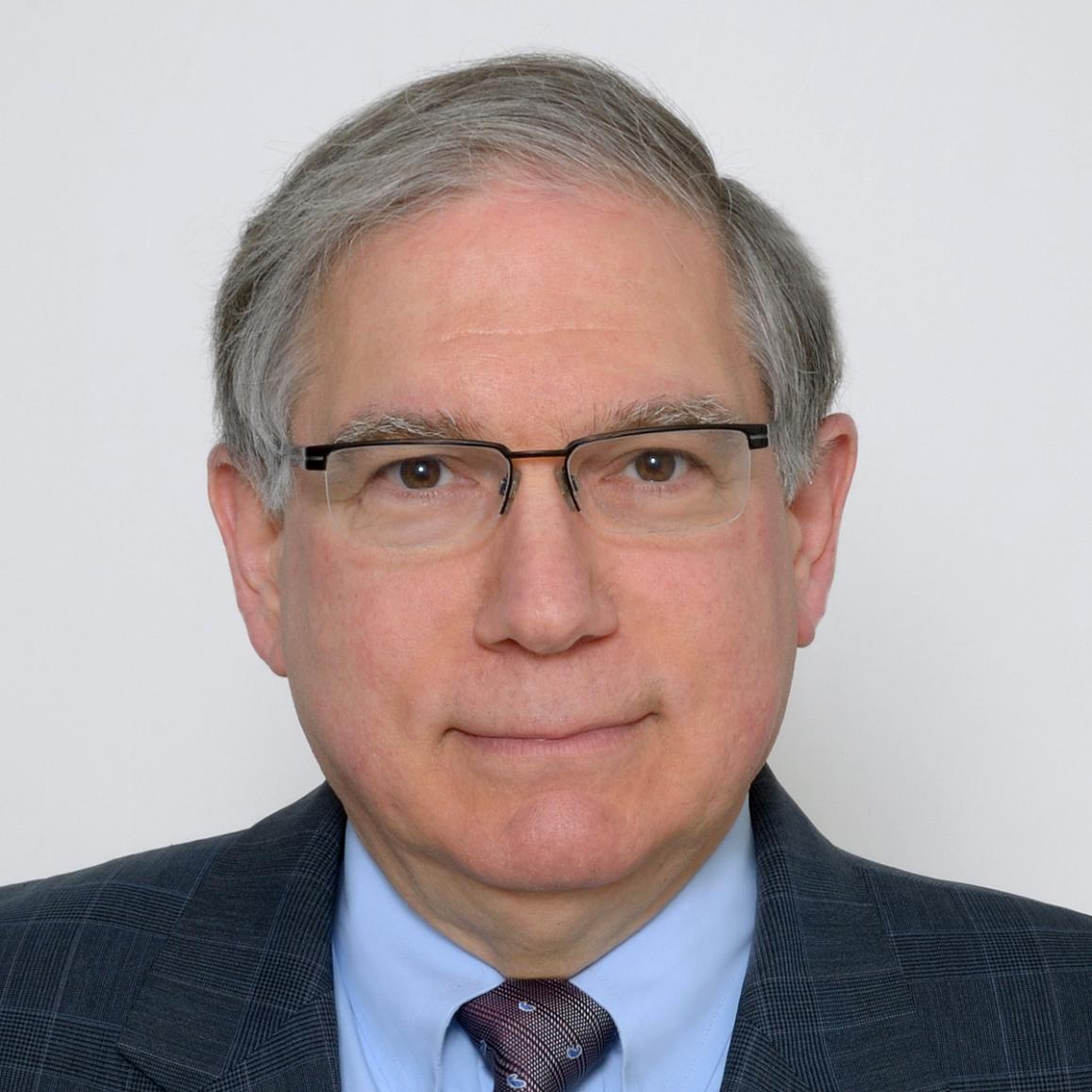
Moderator:
 Dawn Bonnell, Ph.D. is the Vice Provost for Research of the University of Pennsylvania. In this capacity Dr. Bonnell shapes policy and advances administrative initiatives for the University’s $900+ million research enterprise as well as plays a leadership role in strategic planning for research and administers the development of new research facilities.
Dawn Bonnell, Ph.D. is the Vice Provost for Research of the University of Pennsylvania. In this capacity Dr. Bonnell shapes policy and advances administrative initiatives for the University’s $900+ million research enterprise as well as plays a leadership role in strategic planning for research and administers the development of new research facilities.
Profile
 Dr. Lawrence Tabak is the Principal Deputy Director of the National Institutes of Health (NIH) and the Deputy Ethics Counselor of the Agency. He previously served as the Acting Principal Deputy Director of NIH (2009), and prior to that as Director of the National Institute of Dental and Craniofacial Research from 2000-10. Dr. Tabak has provided leadership for numerous trans-NIH activities, including the NIH Roadmap effort to support team science; the NIH Director’s initiative to enhance peer review; NIH’s American Recovery and Reinvestment Act implementation; the NIH initiative to enhance rigor and reproducibility in research; and the NIH-Wide Strategic Plan.
Dr. Lawrence Tabak is the Principal Deputy Director of the National Institutes of Health (NIH) and the Deputy Ethics Counselor of the Agency. He previously served as the Acting Principal Deputy Director of NIH (2009), and prior to that as Director of the National Institute of Dental and Craniofacial Research from 2000-10. Dr. Tabak has provided leadership for numerous trans-NIH activities, including the NIH Roadmap effort to support team science; the NIH Director’s initiative to enhance peer review; NIH’s American Recovery and Reinvestment Act implementation; the NIH initiative to enhance rigor and reproducibility in research; and the NIH-Wide Strategic Plan.
Profile
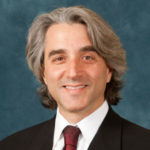 Dr. Arthur Lupia is the head of the National Science Foundation Directorate for Social, Behavioral, and Economic Sciences (SBE), which supports fundamental research in behavioral, cognitive, social and economic sciences. Lupia has more than 25 years of leadership and management experience in the social sciences community. Since 2006, he has served as the Hal R. Varian Collegiate Professor of Political Science at the University of Michigan. He serves concurrently as chairman of the board for the Center for Open Science and as the chair of the National Academies Roundtable on the Communication and Use of Social and Behavioral Sciences. Lupia has also held leadership positions in numerous professional societies.
Dr. Arthur Lupia is the head of the National Science Foundation Directorate for Social, Behavioral, and Economic Sciences (SBE), which supports fundamental research in behavioral, cognitive, social and economic sciences. Lupia has more than 25 years of leadership and management experience in the social sciences community. Since 2006, he has served as the Hal R. Varian Collegiate Professor of Political Science at the University of Michigan. He serves concurrently as chairman of the board for the Center for Open Science and as the chair of the National Academies Roundtable on the Communication and Use of Social and Behavioral Sciences. Lupia has also held leadership positions in numerous professional societies.Profile

Moderator:
 Brandon Lausch is the Director of Strategic Marketing and Communications at Temple University. His responsibilities include university communications functions, media relations and issues management. Formerly, he was a reporter with the Courier News and Home News Tribune of the Gannett newspaper chain in New Jersey.
Brandon Lausch is the Director of Strategic Marketing and Communications at Temple University. His responsibilities include university communications functions, media relations and issues management. Formerly, he was a reporter with the Courier News and Home News Tribune of the Gannett newspaper chain in New Jersey.
Profile
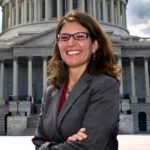 Jennifer T. Poulakidas joined APLU in 2006 as Vice President for Congressional and Governmental Affairs. In this role, she works closely with the leadership of APLU’s more than 230 member universities to promote public higher education’s positions to Congress and the Executive Branch on science and research, student affordability and access, innovation and competitiveness, and internationalization, among other issues of importance to major public universities.
Jennifer T. Poulakidas joined APLU in 2006 as Vice President for Congressional and Governmental Affairs. In this role, she works closely with the leadership of APLU’s more than 230 member universities to promote public higher education’s positions to Congress and the Executive Branch on science and research, student affordability and access, innovation and competitiveness, and internationalization, among other issues of importance to major public universities.Profile
 Dr. Christopher Labos is an MSc Associate in the Office for Science and Society at McGill University. He is a cardiologist with a degree in epidemiology and biostatistics, researcher, teacher, and podcaster. He realizes that half of his research findings will be disproved in five years: he just doesn’t know which half. He is a freelance contributor for the Montreal Gazette, CJAD, and has also appeared on CBC Radio and CBC Television.
Dr. Christopher Labos is an MSc Associate in the Office for Science and Society at McGill University. He is a cardiologist with a degree in epidemiology and biostatistics, researcher, teacher, and podcaster. He realizes that half of his research findings will be disproved in five years: he just doesn’t know which half. He is a freelance contributor for the Montreal Gazette, CJAD, and has also appeared on CBC Radio and CBC Television.Profile
 Ed Cara is a Brooklyn-based Science Writer and Health Reporter for Gizmodo. When not delving into the nitty-gritty of psychology, sociology, and public health, he enjoys running, moonlighting as a improv comedian, and volunteering. He has previously contributed to The Atlantic and Pacific Standard magazine.
Ed Cara is a Brooklyn-based Science Writer and Health Reporter for Gizmodo. When not delving into the nitty-gritty of psychology, sociology, and public health, he enjoys running, moonlighting as a improv comedian, and volunteering. He has previously contributed to The Atlantic and Pacific Standard magazine.Profile
FEATURED SPEAKERS
Dr. Lawrence Tabak
Principal Deputy Director, National Institutes of Health (NIH)
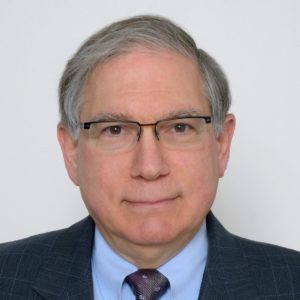 Dr. Lawrence Tabak is the Principal Deputy Director of the National Institutes of Health (NIH) and the Deputy Ethics Counselor of the Agency. He previously served as the Acting Principal Deputy Director of NIH (2009), and prior to that as Director of the National Institute of Dental and Craniofacial Research from 2000-10. Dr. Tabak has provided leadership for numerous trans-NIH activities, including the NIH Roadmap effort to support team science; the NIH Director’s initiative to enhance peer review; NIH’s American Recovery and Reinvestment Act implementation; the NIH initiative to enhance rigor and reproducibility in research; and the NIH-Wide Strategic Plan.
Dr. Lawrence Tabak is the Principal Deputy Director of the National Institutes of Health (NIH) and the Deputy Ethics Counselor of the Agency. He previously served as the Acting Principal Deputy Director of NIH (2009), and prior to that as Director of the National Institute of Dental and Craniofacial Research from 2000-10. Dr. Tabak has provided leadership for numerous trans-NIH activities, including the NIH Roadmap effort to support team science; the NIH Director’s initiative to enhance peer review; NIH’s American Recovery and Reinvestment Act implementation; the NIH initiative to enhance rigor and reproducibility in research; and the NIH-Wide Strategic Plan.
Dr. Arthur Lupia
Head of the National Science Foundation Directorate for Social, Behavioral, and Economic Sciences
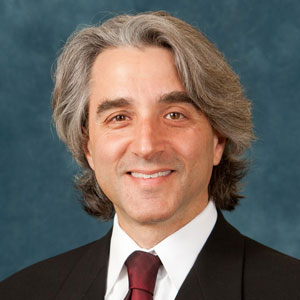 Dr. Arthur Lupia is the head of the National Science Foundation (NSF) Directorate for Social, Behavioral, and Economic Sciences (SBE), which supports fundamental research in behavioral, cognitive, social and economic sciences. Lupia has more than 25 years of leadership and management experience in the social sciences community. Since 2006, he has served as the Hal R. Varian Collegiate Professor of Political Science at the University of Michigan. He serves concurrently as chairman of the board for the Center for Open Science and as the chair of the National Academies Roundtable on the Communication and Use of Social and Behavioral Sciences. Lupia has also held leadership positions in numerous professional societies.
Dr. Arthur Lupia is the head of the National Science Foundation (NSF) Directorate for Social, Behavioral, and Economic Sciences (SBE), which supports fundamental research in behavioral, cognitive, social and economic sciences. Lupia has more than 25 years of leadership and management experience in the social sciences community. Since 2006, he has served as the Hal R. Varian Collegiate Professor of Political Science at the University of Michigan. He serves concurrently as chairman of the board for the Center for Open Science and as the chair of the National Academies Roundtable on the Communication and Use of Social and Behavioral Sciences. Lupia has also held leadership positions in numerous professional societies.
Dr. Marcia Kemper McNutt
President, National Academy of Sciences
 Marcia Kemper McNutt is an American geophysicist who became the 22nd president of the National Academy of Sciences on July 1, 2016. She was previously editor-in-chief of the journal Science.
Marcia Kemper McNutt is an American geophysicist who became the 22nd president of the National Academy of Sciences on July 1, 2016. She was previously editor-in-chief of the journal Science.
Dr. John Ioannidis
Professor of Medicine and of Health Research and Policy, Stanford
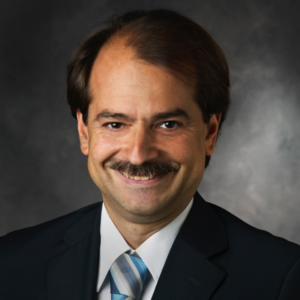 John Ioannidis is a Professor of Medicine and of Health Research and Policy at Stanford University School of Medicine and a Professor of Statistics at Stanford University School of Humanities and Sciences. He is director of the Stanford Prevention Research Center, and co-director, along with Steven N. Goodman, of the Meta-Research Innovation Center at Stanford (METRICS). He is also the editor-in-chief of the European Journal of Clinical Investigation. Ioannidis’s 2005 paper “Why Most Published Research Findings Are False” has been the most downloaded technical paper from the journal PLoS Medicine.
John Ioannidis is a Professor of Medicine and of Health Research and Policy at Stanford University School of Medicine and a Professor of Statistics at Stanford University School of Humanities and Sciences. He is director of the Stanford Prevention Research Center, and co-director, along with Steven N. Goodman, of the Meta-Research Innovation Center at Stanford (METRICS). He is also the editor-in-chief of the European Journal of Clinical Investigation. Ioannidis’s 2005 paper “Why Most Published Research Findings Are False” has been the most downloaded technical paper from the journal PLoS Medicine.
Dr. Brian Nosek
Co-founder & Director of the Center for Open Science / Professor of Psychology, University of Virginia
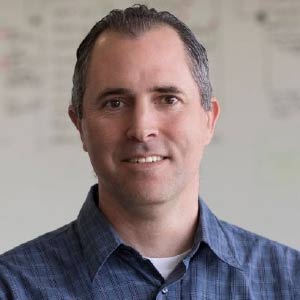 Brian Nosek is co-Founder and Executive Director of the Center for Open Science that operates the Open Science Framework. COS is enabling open and reproducible research practices worldwide. Brian is also a Professor in the Department of Psychology at the University of Virginia. He received his Ph.D. from Yale University in 2002. He co-founded Project Implicit, a multi-university collaboration for research and education investigating implicit cognition–thoughts and feelings that occur outside of awareness or control. Brian investigates the gap between values and practices, such as when behavior is influenced by factors other than one’s intentions and goals. Research applications of this interest include implicit bias, decision-making, attitudes, ideology, morality, innovation, barriers to change, open science, and reproducibility. In 2015, he was named one of Nature’s 10 and to the Chronicle for Higher Education Influence list.
Brian Nosek is co-Founder and Executive Director of the Center for Open Science that operates the Open Science Framework. COS is enabling open and reproducible research practices worldwide. Brian is also a Professor in the Department of Psychology at the University of Virginia. He received his Ph.D. from Yale University in 2002. He co-founded Project Implicit, a multi-university collaboration for research and education investigating implicit cognition–thoughts and feelings that occur outside of awareness or control. Brian investigates the gap between values and practices, such as when behavior is influenced by factors other than one’s intentions and goals. Research applications of this interest include implicit bias, decision-making, attitudes, ideology, morality, innovation, barriers to change, open science, and reproducibility. In 2015, he was named one of Nature’s 10 and to the Chronicle for Higher Education Influence list.
FEATURED PANEL SPEAKERS

Dr. Leonard Freedman
Founding President & CSO of the Global Biological Standards Institute
Dr. Leonard Freedman is the founding President of the Global Biological Standards Institute (GBSI). Prior to starting GBSI, he served as Vice Dean for Research and Professor of Biochemistry and Molecular Biology at Jefferson Medical College, a Vice President at Wyeth and Executive Director at Merck and a Professor of Cell Biology & Genetics at Memorial Sloan-Kettering Cancer Center and Weil Cornell Medical College.

Jennifer T. Poulakidas
Vice President for Congressional and Governmental Affairs, APLU
Jennifer T. Poulakidas joined APLU in 2006 as Vice President for Congressional and Governmental Affairs. In this role, she works closely with the leadership of APLU’s more than 230 member universities to promote public higher education’s positions to Congress and the Executive Branch on science and research, student affordability and access, innovation and competitiveness, and internationalization, among other issues of importance to major public universities.

Dr. Christopher Labos
MSc Associate, Office for Science and Society, McGill University
Dr. Christopher Labos is an MSc Associate in the Office for Science and Society at McGill University. He is a cardiologist with a degree in epidemiology and biostatistics, researcher, teacher, and podcaster. He realizes that half of his research findings will be disproved in five years: he just doesn’t know which half. He is a freelance contributor for the Montreal Gazette, CJAD, and has also appeared on CBC Radio and CBC Television.

Ed Cara
Science Writer & Health Reporter, Gizmodo
Ed Cara is a Brooklyn-based writer. When not delving into the nitty-gritty of psychology, sociology, and public health, he enjoys running, moonlighting as a improv comedian, and volunteering. He has previously contributed to The Atlantic and Pacific Standard magazine.

Dr. Irma T. Elo
Professor of Sociology, University of Pennsylvania
Irma T. Elo, Ph.D. is an Professor of Sociology at Penn whose studies include analysis of race/ethnic disparities in maternal and infant and child health in Philadelphia and nationally, early life conditions and adult mortality in Finland, and differences in health and mortality among native-born and foreign-born US residents.

Dr. Theodore Taraschi
Senior Associate Provost for Research Conduct & Compliance, Thomas Jefferson University
As the Senior Associate Provost for Research Conduct and Compliance, Dr. Theodore Taraschi oversees the Office of Research Conduct and Compliance and facilitates the conduct of ethical and regulation-compliant (animal and human subject) research through an integrated system of research review, audit and educational programs established in a manner that maximizes institutional effectiveness.

Dr. Simon Giszter
Professor in the Department of Neurobiology & Anatomy at Drexel University College of Medicine
Dr. Simon Giszter is a professor in the Department of Neurobiology & Anatomy at Drexel University College of Medicine. He is also joint faculty in the School for Biomedical Engineering, Science & Health Systems at Drexel. He has a long history of collaboration with members of the Spinal Cord Injury Research Center and with laboratories in the School of Bioengineering, Science & Health Systems and in the College of Engineering.

Dr. Aaron Roth
Associate Professor in Computer and Information Science, University of Pennsylvania
Aaron Roth is an Associate Professor in Computer and Information Science at Penn who studies algorithmic foundations of data privacy and game theory and has done prescriptive work on p hacking.



